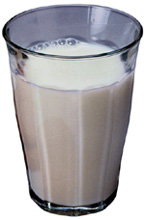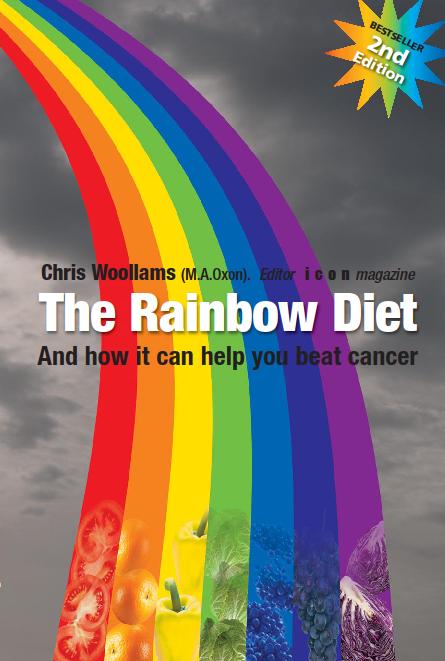Even recommended by governments
Folic acid (vitamin B-9) is the synthetic form of the naturally occuring folate, a member of the vitamin B family. Folate is almost certainly a crucial vitamin in the prevention of cancer, but our knowledge is still in its infancy. There is some evidence (in colon cancer research) that synthetic folic acid may not provide the benefits of folate fully.
Cellular growth
We know that folic acid works with vitamin B-12 in the development of new cells in the body. For example, we know that folate is crucial to the development of a healthy foetus.
In fact folate cannot work without vitamin B-12, which is itself involved in more than 300 enzymatic reactions in the body.
Supplementation is recommended in the US and Australia but not officially, yet, in the UK, although there are moves afoot.
Cardiovascular Effect
Folate is known to reduce homocysteine levels in the body, elevated levels of which cause at least 10 per cent of all heart disease. It has been calculated that a 50 mcg increase in daily intake levels of folate would prevent 4,000 to 10,000 US deaths per year. Supplementation with folic acid has been shown to reduce homocysteine levels.
General Effects
 A deficiency can show up as white flecks in the finger nails
A deficiency can show up as white flecks in the finger nails
Research suggests that supplementation during pregnancy can prevent anaemia in women and reduces the risk of complications and birth defects.
Folic acid aids amino acid metabolism - remember that you make some of them yourself. And research indicates it even seems to prevent grey hair. A deficiency can show up as white flecks in the finger nails - deficiency is linked to gastrointestinal disorders, although research on beneficial bacteria in the gut now clearly shows that an imbalance of friendly bacteria means that you cannot release important nutrients from your foods. Folate, B-12, vitamin K are just some of these.
According to 2011 Swedish research (Nilsson TK, Yngve A, Bttiger AK, et al. High Folate Intake Is Related to Better Academic Achievement in Swedish Adolescents. PEDIATRICS 2011. doi: 10.1542/peds.2010-1481) children with the highest folate levels exhibit greater acedemic achievement. Folate also seems to play a role in brain function, and lowered levels increase the risk of dementia, as with vitamin B-12.
The Cancer Connection
More than 20 epidemology studies have shown that folic acid in multivitamins or on its own (at 400 mcgs daily) reduces colon cancer by some 40 per cent. For example. in the Boston Nurses Study (88,756 nurses) women who took a multivitamin daily for 15 years (400 mcgs) had 75 per cent less colon cancer.
In a 2011 study published in Gastroenterology magazine (2011; 141(1); 98-105) this finding was confirmed - daily supplementation does reduce the risk of colon cancer.
Folic acid appears essential if vitamin B-12 is to be effective. More can be found on vitamin B-12 and its crucial role in cancer, by CLICKING THIS LINK.
Folic acid is also known to be essential in the accurate replication (copying) of your cellular blueprint - your DNA. It also plays a role in copying RNA from the DNA (mRNA refers to the messages sent out from your DNA into the cell. Thus it can influence how our cells’ DNA is copied, and how messages are copied and relayed from that DNA throughout the cell and to other tissues. Miscopying the DNA genetic code during cell division is one route to cancer as it can result in rogue cells being produced and/or a lack of important protein messages.

Folate is also essential for the formation of red cells by its action in bone marrow.
RDA
The RDA is official 400 mcgs for men and 200 mcgs for women.
Sources
As with Biotin, the processing and refining of our cereals has left us facing a shortage of Folic acid. This is exascerbated by the damage drugs, antibiotics, chlorinated water, salt and alcohol can do to the levels of friendly beneficial bacteria in our intestines.
Folate is typically found in the wholegrain breads and yeast extract. Other sources are green leafy vegetables, beans, lentils, liver, egg yolk, milk and milk products, oranges and orange juice, beets, beer and almonds.
As we said above, you will not be able to fully release B vitamins from your food without the presence of the correct Beneficial Bacteria. If you are taking drugs, especially antibiotics, you may well need to supplement with a multi-strain probiotic to help you derive these vitamins from your food, however wholesome it is. CLICK HERE to read more on the subject of beneficial bacteria and colon cancer.
CLICK HERE to go to the Natural Selection store if you are looking to buy multi-strain PROBIOTICS.
If you are thinking of supplemenation with folic acid, or B vitamins, you might like to look at the Advanced B Complex supplement in the Natural Selection shop. CLICK HERE.

 At last - the definitive, research-based book on how to build a diet to help beat cancer. Click here to read about it.
At last - the definitive, research-based book on how to build a diet to help beat cancer. Click here to read about it.
Please be clear: At CANCERactive we do not consider the above compound to be a cure for cancer, despite what the research says or experts doing the research may claim. The above, is an article on the compound from published research and expert opinion in the public domain. At CANCERactive we do not believe that any single compound (drug, vitamin, whatever) is a cure for cancer. We believe that people can significantly increase their personal odds of survival by building an Integrated Programme of treatments. Equally, cancer prevention is best practiced through a width of measures.